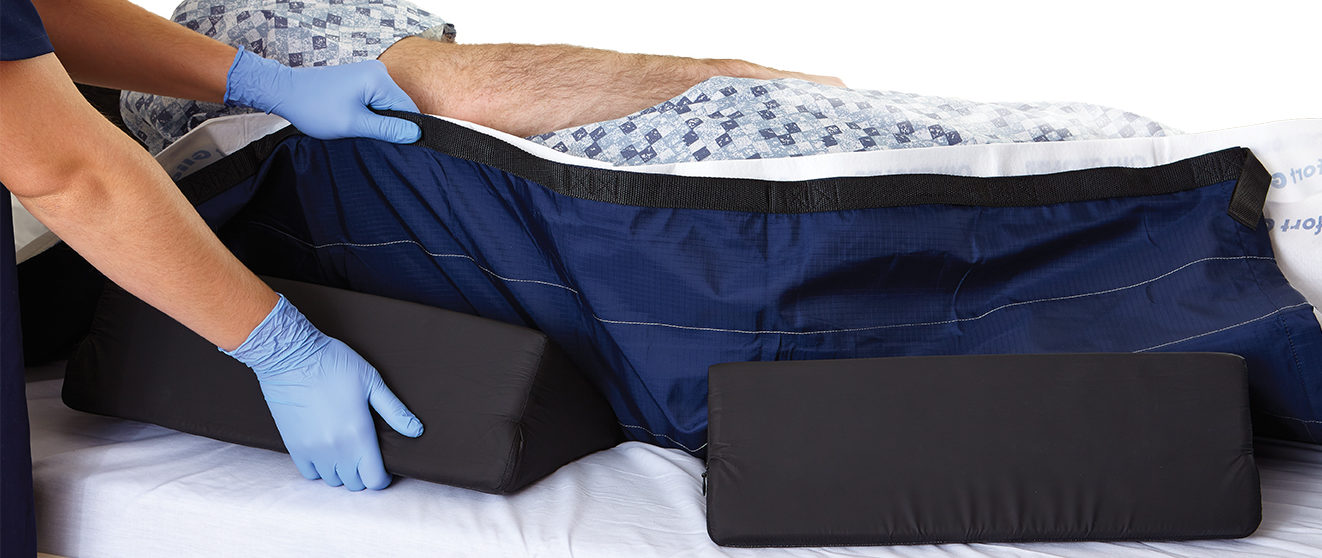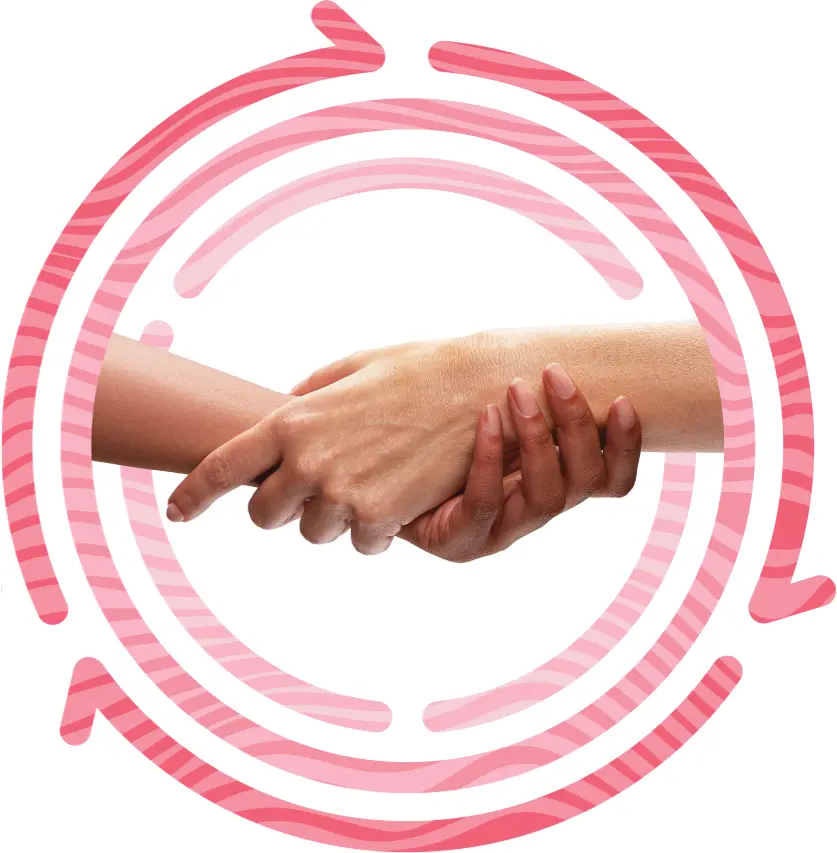Best Practices
A telemetry unit celebrates HAPI prevention
From June 2017 to June 2018, Bayshore Medical Center in Holmdel, New Jersey, reported 36 hospital-acquired pressure injuries (HAPIs) on its telemetry unit—the highest HAPI incidence rate of any unit at the 150-bed medical center.
Common areas of pressure injuries were the buttocks, sacrum, coccyx, hip, thoracic spine and heels. Most incidences were on buttock areas, followed by sacrum and coccyx areas.
Fast-forward to today. Replacing pillows used for patient turning, and offloading with Comfort Glide Wedges, have led to positive results. After adopting the foam wedges, staff report fewer HAPIs in the 38-bed unit and have more time to dedicate to their patients. This success led to implementing foam wedges in other hospital units.
Back story
Before implementation, the staff positioned patients with pillows, says Kathy Armstrong, BSN, RN-BC, wound nurse specialist at Bayshore. “We needed to address pressure injuries,” because pillows were softening and becoming unsupportive. The telemetry unit introduced foam wedges in a two-week trial period. Prior to the trial, RNs and patient care technicians (PCTs) were educated and trained on how to properly use them. During the trial, staff closely tracked the approximately eight patients using foam wedges at any given time each day and recorded findings on a highly visible whiteboard. There are about seven RNs and two CNAs or PCTs working on each shift.
With foam wedges, “nurses were able to turn patients effectively every two hours, and patients remained in position over that duration,” Armstrong says.

Quick success
There was an immediate drop in HAPIs, Armstrong says. “During the trial, I suddenly didn’t have as many consults on the unit. Instead, I was actually able to see patients with complex wounds.”
Armstrong noted that support from the telemetry unit’s management was key to switching to foam wedges. Today, the staff celebrates a HAPI-free unit every 30 days by hosting a lunch. To maintain success, a nurse presents an educational board and current HAPI rates at huddles and staff meetings.
Bayshore Medical Center, in Holmdel, New Jersey, joined Hackensack Meridian Health in 2011. The 150-bed medical center remains committed to caring for its community and fulfilling Meridian’s vision to “Take Care of New Jersey.”
Hackensack Meridian Health is a fully integrated, not-for-profit healthcare network in New Jersey. The organization is composed of 16 hospitals, including three academic medical centers, two children’s hospitals, nine community hospitals and two rehabilitation hospitals. The network has 33,000 team members, 6,500 physicians and over 450 patient care locations throughout the state.
